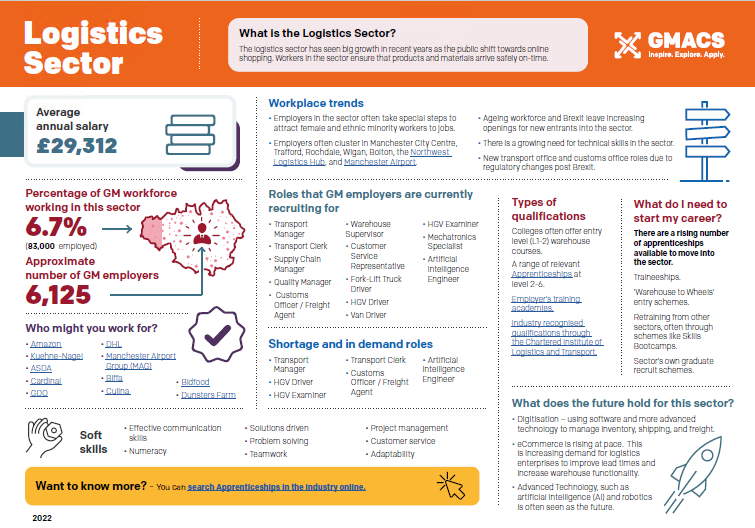If you’re a logical thinker, with great problem solving and organisational skills, together with a passion for learning, a career in IT and Tech could be for you.
It’s an incredibly fast-moving sector as companies of all shapes and sizes embrace business transformation, technological advancement and automation, the need for enhanced security, data analytics and agile working processes. That means there’s plenty of demand, a range of entry routes and endless ways to grow and develop a career in IT.
Here in Stockport, and across Greater Manchester, we’re home to a thriving tech hub for disruptive, industry-leading successful firms as well as emerging ‘unicorn’ start-ups. In 2019, Manchester leapfrogged other major cities to become the fastest-growing tech hub in Europe and this pace of growth has continued despite the pandemic, with companies both large and small seeing significant expansion.
Featured Stockport Employer
Hear from Tim at CDL in Stockport, sharing his career story about working in the IT & Tech Industry. Founded in 1977, CDL provides software solutions for retail insurance operations. It began as a living room start-up founded by Tom Hogg and his wife Jessica in 1977 and today employs over 650 people. The company provides insurance solutions for household brands including Swinton Insurance, Sainsbury’s Bank, Tesco Bank and Ageas Retail.
Tim works at CDL as a Software Engineering Manager. Find out what his job involves, how he landed the role, the essential skills and his recommendations for others looking to join the tech sector.
Labour Market Information
Despite recent challenges posed by COVID-19, certain sectors across the UK have continued to thrive and IT is one of them. Businesses in a range of industries have needed to embrace new technologies – from remote-working IT networking and advanced security through to e-commerce and online payment solutions to reduce cash transactions.
As a result, the UK’s tech sector has shown resilience and continued growth as many technologies have been adapted at a quicker pace than in normal times. This has naturally meant an increase in new job creation as skilled workers are needed to fuel this momentum.
According to Tech Nation’s ‘UK in Tech’ 2020 review, almost 3 million people were employed in the UK’s digital economy – an increase of 11% within the last 2 years. Plus, according to the UK Tech Ecosystem Update 2020, a tenth of all UK job vacancies are tech roles.
However, this pace of growth and changing technologies has had an impact. It’s recognised that there are now no formal progression routes within the tech sector and the vast differences between role titles and job descriptions from company to company can make it harder to navigate the opportunities available.
On the flip side, the flexibility created by these different entry and development routes can lead to diversity and social mobility as it opens up opportunities to non-traditional employment and educational backgrounds.
Starting Salary
£12.50 per hour or £18-£21,000
per annum
Typical Salary Range
£18,000 – £85,000
per annum
Working Hours
35 to 39 hours per week, usually between 8am and 6pm

LMI Infographic from GMACS
GMACS have produced a range of helpful infographics to summarise careers in the Digital & Tech sector and the current employment landscape in Greater Manchester. According to the stats, the most in-demand roles are as a Cyber Security Engineer, Systems Analyst, IT Product Manager and Software Tester and you may find yourself working for Google, Microsoft, IBM, Cisco, GCHQ or even Stockport’s own CDL.
You can view the full infographic and click on the links for more information by selecting the button below to view as a PDF.























